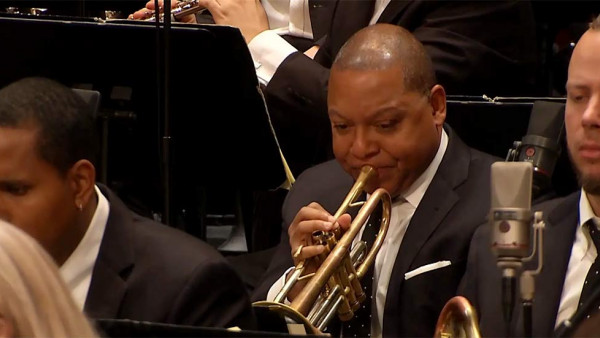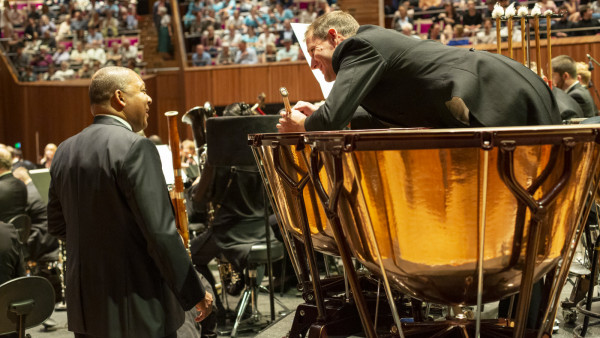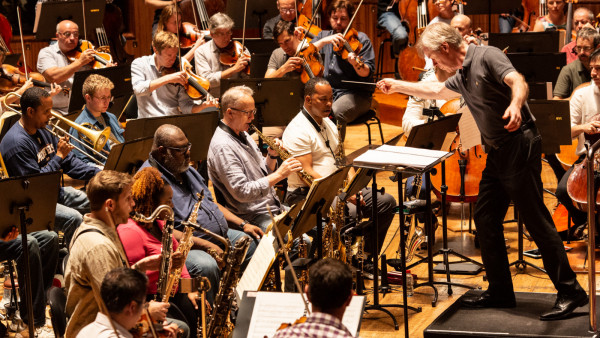‘Excellence is a form of protest’: Wynton Marsalis
When Wynton Marsalis helped found the jazz wing of the storied Lincoln Center in New York City, he became the most powerful man in jazz. And like all powerful men, he has his detractors.
In the view of the critics, the influence of his position as managing and artistic director – overseeing a $70 million annual budget, curating one of the most consequential performance seasons in jazz – stands in uneasy relation to the freewheeling, subversive roots of his art form.
Ahead of his tour of Australia, the trumpeter speaks coolly of his critics: “This cliche came out of the 1960s that the only way you could be radical is by hollering in the street and looking dishevelled. Martin Luther King, WB Yeats and Shakespeare were radicals.”
“Excellence is a form of protest,” he says.
Not misunderstood
If that’s true, Marsalis has been protesting for a very long time. After bursting onto the scene as a 20-year-old in 1982 with his first album Wynton Marsalis, he became in the following year the first musician to simultaneously win Grammy awards in both jazz and classical categories. Twelves months after that, he repeated the trick.
In the reams of writing about Marsalis, for example on his criticism of some strains of hip-hop as “more damaging than a statue of Robert E. Lee”, a phrase recurs: Wynton Marsalis is misunderstood.
But the man himself says he doesn’t view it that way; he points instead to the structural racism through which his career has always been refracted.
Asked whether he felt he had been misunderstood, Marsalis says, “We don’t have to do that. You have a sense of reality. You’re intelligent. You see it.”
Then, a final jab at the journalist: “If you haven’t seen it, don’t say it. If you haven’t felt it, don’t write it.”
Original voice
The trumpeter grew up in New Orleans as the second of six sons. His father Ellis Marsalis Jr, a pianist, introduced a young Wynton to musical giants like Al Hurt and Clark Terry.
But Marsalis says he never saw a tension between respecting tradition and developing his own style: “Even in the first record I made when I was 19, I sounded like myself. I didn’t sound good but I sounded like myself.”
This was for him no matter of youthful rebellion or jealous antipathy. “I was not an enemy to those people’s styles. Only a fool is an enemy to his own people,” he says.
Marsalis brings these disparate strains – heritage and innovation, swing and symphony – to bear on his compositions. The 1997 Blood on the Fields, for which Marsalis won the Pulitzer Prize, is a two-and-a-half-hour jazz oratorio about two people’s escape from slavery to freedom. In Sydney and Melbourne, he will play his kaleidoscopic symphonic tribute to New York City: The Jungle.
After a day of rehearsals with the Sydney Symphony Orchestra, Marsalis says he draws management insights from his experience with the music. It comes down, he says, to what drummer Art Blakey once told him: “get people who can play and leave them alone”.
Hopeful together
One of Marsalis’ current fascinations is with musical hybrids beyond the classical-jazz nexus. He sees in Latin habanera rhythm, as with the pentatonic scale or fundamental harmonies, universal tendencies that could be the basis for writing new music.
When distinctive traditions come together this way, Marsalis says it’s like the birth of a child. The offspring is a variation of what has come before, but one that retains the marker of its roots.
“You still have the fundamentals of your parents in you. You’d have to go into your DNA to change that,” he says.
There is, Marsalis acknowledges, a strain of hopefulness that peeks through these answers. But he adds a qualification: “The optimism of the blues is not naive. It’s not a boys and girls show. This is for adults.”
by Bo Seo
Source: Financial Review





